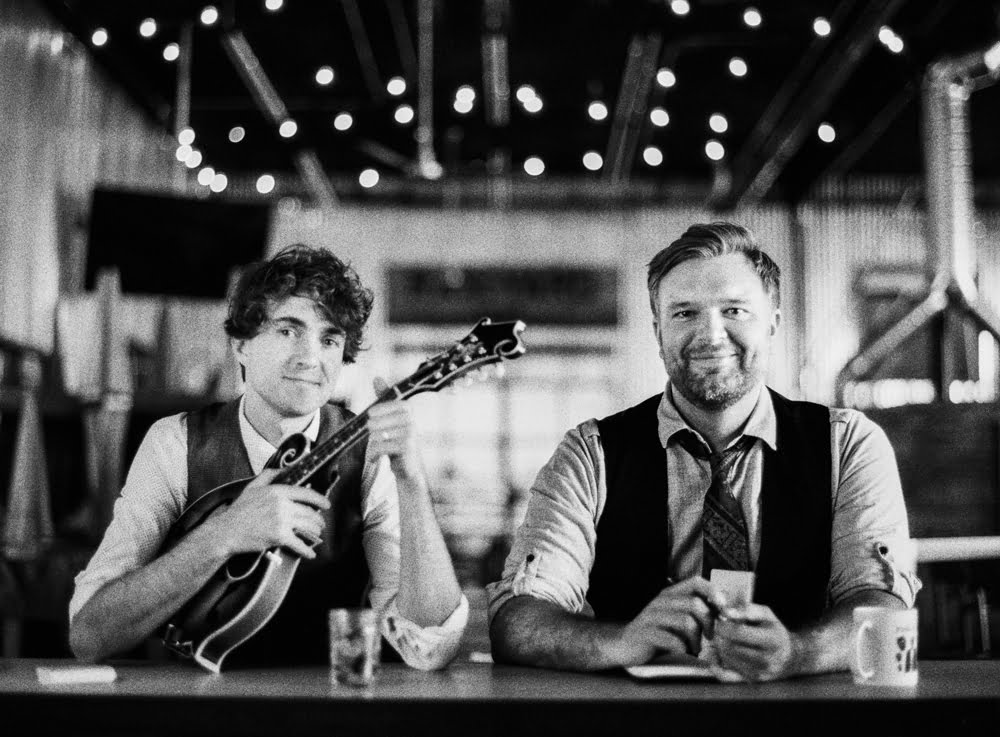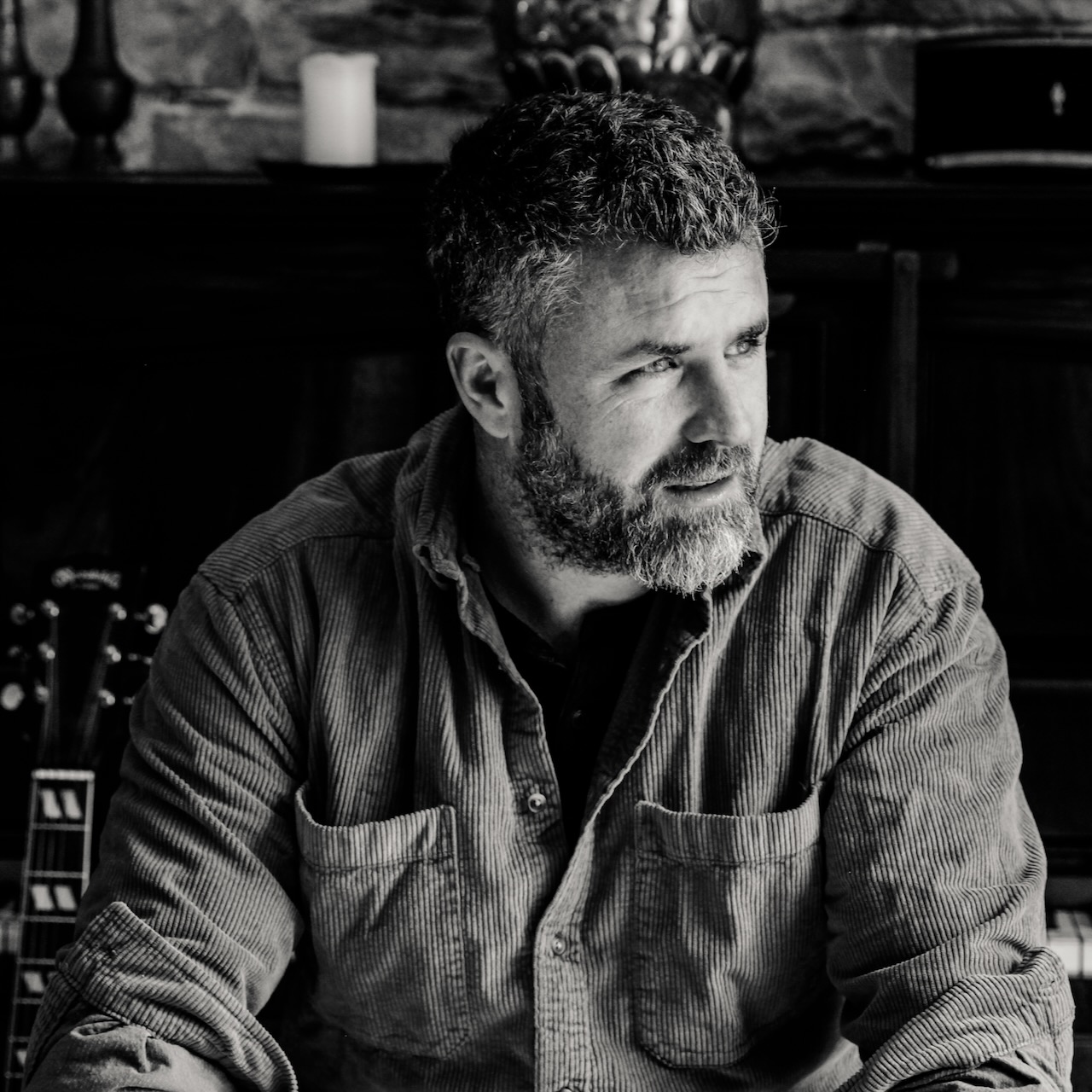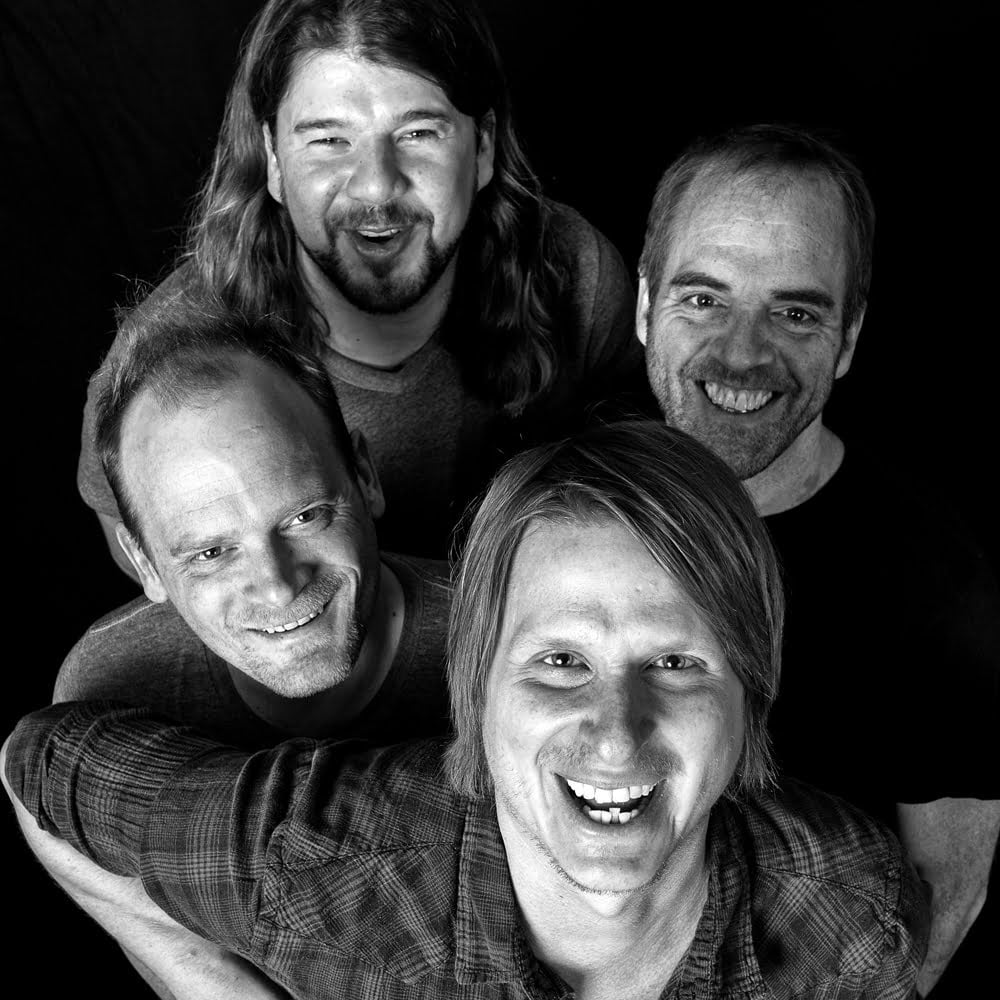In the second half of our conversation with the Milk Carton Kids, Kenneth Pattengale and Joey Ryan openly shared their disagreement over some pretty serious issues. The pre-release publicity for their new album, All the Things That I Did and All the Things That I Didn’t Do, revealed some of the life experiences the two have been through since their last album. Pattengale dealt with cancer and the painful end of a seven-year relationship; Ryan had a child. And they have a real difference of opinion on whether those things should be brought to listeners’ attention as the subject of these new songs. But beneath the bickering, you may still sense the milk of human kindness.
[Read the part one of our conversation with Milk Carton Kids.]
The fact that you guys live in different cities now [Pattengale has moved from L.A. to Nashville], does that help or hurt the relationship?
Kenneth: The jury’s still out on that one. [Laughs.] It seems to be fine, for now.
Obviously a big part of why people love you on stage is the rapport you guys have on stage. It must feel a little strange now when you have a band on stage and suddenly there are other people there waiting for you to talk.
Kenneth: It’s become such a part of our identity, and I’m kind of confounded as to why. Anything that anybody’s ever laughed at on stage that we’ve said, it’s just what we do in the car or on the phone. And sometimes it’s funny and sometimes it’s not, and we’ve learned how to make it read a little better for an audience with the timing, but it’s how we always are.
With you guys being in such different places geographically as well as probably emotionally, was it easy to sort of come together and write on the same page? There’s a pretty consistent mood to a lot of the album, or at least some sort of thematic undertow, despite your different experiences.
Kenneth: I think that just might reflect a commonality of vision. Because truthfully the songs on this album are the most singular Joey and I have ever written. Outside of “One More for the Road,” which we wrote together in a different era before our band existed, every single song on this record was written by one or the other of us, lyrically. It was not like our song “New York” on Prologue where we sat down together and wrote lines and talked about what would happen to the story if we changed this or that. I showed up with that song “All the Things,” and Joey said, “Would you consider changing this word?” And I said, “Nope!” The same thing for “Unwinnable War,” “Blindness,” and “Just Look at Us Now” when he wrote those.
Joey: The thing that I’m really proud of in terms of the album having a commonality amongst the songs is the thing that the band brought to bear on it. I have a real fondness for albums that sound like they’re played by a band in a room, and where the whole album is sort of treated conceptually, not necessarily from a writing standpoint, but from a recording and production standpoint. And while we did have some musicians come in and out for certain songs, the core of the band that was there for the 11 days that we recorded gives such a strong identity to the record that ties songs together that could feel very disparate… as opposed to something where everybody said, “Okay, let’s take it one song of time. What does this song need? What does that one need?”
There are some very stark, end-of-relationship type songs in here, or maybe the ends of things that aren’t even relationships — looking back on the past, or doing something for the last time. Was it daunting to write in a really direct fashion where there is pretty emotional stuff happening?
Kenneth: Not daunting. Maybe where there existed more insecurity or preciousness in years past, there’s just maybe less f—s given, and maybe some confidence that’s come with artistic, if not financial, success. We seem to have an audience that’ll listen to us. I think that that engenders a specific amount of courage in digging deeper and being more honest, and it was maybe time to do that anyway, so the stars aligned on that front.
And as a songwriter, the hardest thing you can ever search for is honesty. And when you have these sort of traumatic events that happen, that’s a real easy way to sort of cherry-pick some relatable honesty. You don’t ever want to have to suffer to do that. That would be silly. But while it’s there, you might as well take advantage, you know, when you get dumped after seven years.
Joey: It’s true. There was some real stuff that happened.
Kenneth: But with Joey, when Joey had kids, it’s so funny — they write in the press release about him having kids like it’s some seismic shift that nobody’s ever gone through and experienced before. [Laughs.] It’s literally the basis of human existence, and somebody in our organization said, “Man, people are going to be really shocked that Joey had kids!”
Joey: I know. [Sarcastically.] I wish we would just focus on the unique heartaches, like, you know, a breakup.
Kenneth: I wasn’t talking about that. I was talking about beating cancer.
Joey: Oh, yeah, that’s true. That’s something almost nobody’s ever done. [Long pause, followed by awkward laughter.] The whole point that you were making was that they’re relatable! That means that everybody goes through it. But some shit happened in our lives.
Kenneth: Yeah, but having kids…
Joey: My favorite part of Kenneth is when he talks about having kids — either like birthing them, or taking care of them. It’s really cute, Kenneth. Keep going.
Kenneth: Joey went from just wandering around life aimlessly with all this free time to then having kids and having a bunch of people hired to take care of ‘em so that he can just wander around aimlessly with all the free time, but having kids at home that somebody else is taking care of. Just a seismic experiential shift! Everything changed!
Joey: Anyway, to get back to the truth of it all, some shit happened in our lives over the course of the last few years, and there was something to write about. And…
Kenneth: I don’t know.
Joey: We’re not going to argue about this. It’s unquestionably true, and we can list them if you want, but they’ve already been listed in our press release, and…
Kenneth: I would argue that all that happened is we just became better writers.
Joey: Before you finish interrupting me…
Kenneth: You’re interrupting me, technically.
Joey: All right, well, let me finish interrupting you then before you jump back in. It’s the decent thing to do. I mean, you only have to listen to the songs to know what we’ve gone through, which is the whole point of the record. … A lot of things which were actually profound shifts in our lives and ways of perceiving reality happened, and so for me it became easier to write more directly and truthfully than it had been at least on the last record. It’s the reason that I like to write songs, to process things.
Kenneth: I have trouble seeing it, because… Sorry, I know Joey thinks I’m just sandbagging everything now, but I’m not. This is my honest take on it. I think Joey’s always written some really nice songs, and he’s writing them better than ever, and I don’t actually see a very different change. The same thing’s true with me. I’ve always written the best song that I’m capable of.
So whether or not I’ve gotten better at songwriting over the last few years, or if it needs to be contextualized for people to understand that it comes out of some life event, I call bullshit on it, because that to me is just a formal, contextualizing sales pitch for what’s actually just a collection of the best songs that we could write over the last three years. And I think it happens to be better than the ones that came before it, and we’ll see if everybody else agrees.
Joey: It’s interesting for you to reject that sort of attachment to it. But (the closing track) “All the Things” is about your breakup, as is “You Break My Heart,” and there’s no other way to say it than that’s you processing your breakup. I mean, that is a song that you wrote that’s about your breakup. So whether it’s better or worse than others…
Kenneth: Well, I have an issue with that, because it’s not that… Why are you laughing? I’ve being very serious here.
Joey: I’m excited to see how you’re going to say that your song “All the Things” is not about the ending of your relationship.
Kenneth: Because it’s exactly the opposite of that! It has nothing to do with the breakup. It’s about chronicling six years of my life that I look back on very fondly. It has to do with trying to say something that is maybe not able to be said out loud unless you put it in poetry and song. I don’t think that it resounds with people because the human experience is all about breaking up…
I mean, in some ways, yes, maybe it took the trauma of a breakup to put it into words, but it’s about celebrating what was a really beautiful relationship between two people. And frankly, if I’m half the writer that anybody thinks I am, I could have written that song at any moment during the six years, even before it all ended. That song is about reflecting the human condition as I see it and how it relates to me personally, and to couch it in some breakup thing seems like a headline that a publicist thinks would grab some attention. I think that’s crazy. [Pauses.] Did I do a sufficient job?
Joey: I think that was the best you could have done.
Photo credit: Joshua Black Wilkins






